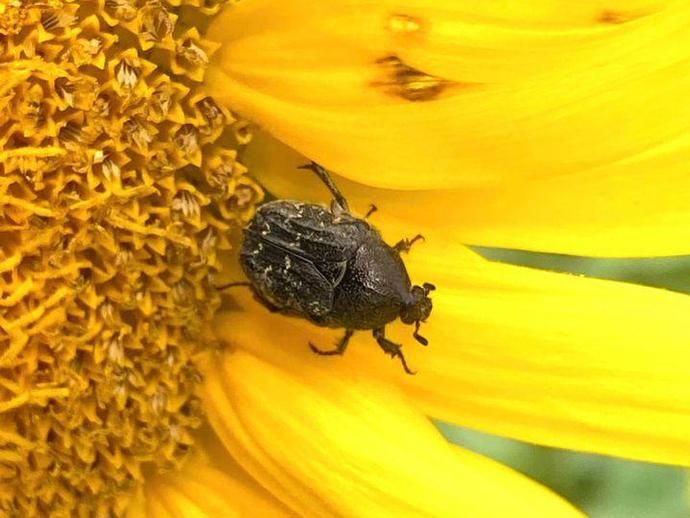October 14, 2021
Ben here with today's edition of #BenInNature presented by our friends at Carter Bank & Trust!
When we think of pollinators, we usually think of bees. Beetles, however, are some of our most important pollinators; it's estimated that nearly 90 percent of the world's flowering plants are pollinated by beetles! In fact, it's believed that beetles were probably the first pollinating insects.
Unlike bees, beetles are considered "dirty" or "mess and soil" pollinators. While many species of beetles drink flower nectar, they might also nibble on a flower petal and defecate on the flower before moving on to the next one. Clearly, they ain't much for table manners.
This particular beetle is Euphoria sepulcralis, also known as the dark flower scarab. It's a common species that tends to first appear on flowers in late spring and remains active into October. While they drink nectar from flowers, they can also become aggressive agricultural pests, particularly on corn and roses.
Thank you to entomologist extraordinaire Dr. Art Evans for identifying this species for me!
ABOUT #BenInNature
Social distancing can be difficult, but it presents a great opportunity to become reacquainted with nature. In this series of posts, Administrator of Science Ben Williams ventures outdoors to record a snapshot of the unique sights that can be found in the natural world. New updates are posted Monday - Friday, with previous posts highlighted on the weekends. This series of posts is made possible thanks to the support of VMNH Corporate Partner Carter Bank & Trust (www.cbtcares.com).
NATURE PHOTO IDENTIFICATIONS
If you discover something in nature that you would like help identifying, be sure to message us right here on Facebook with a picture (please include location and date of picture) and we'll have our experts help you identify it!

 Hours & Admissions
Hours & Admissions Directions
Directions

